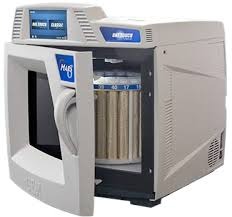
New USP Chapters <232> and <233>, introduced at the beginning of 2018, brought about significant changes in the preparation and analysis of both excipients, the inactive substances that serves as the vehicle or medium for a drug or similar active substance, as well as the active pharmaceutical ingredients (APIs) themselves.
These changes involve the total reduction of samples to individual elements suitable for quantification, principally by ICP-OES or ICP-MS analysis.
The preparation now required means that a number of APIs, particularly those with multiple aromatic ring structures, are going to represent a challenge to traditional microwave digestion instruments and approaches, because of these APISs extreme stability. Large gelatin capsules can also prove problematical because of the large amount of oil they contain.
The CEM MARS 6 microwave digestion system, with iPrep vessels equipped with dual-seal technology, is ideally suited to handle the introduced changes. Their patented design means iPrep vessels can hold much higher temperatures and pressures than other digestion vessels, allowing for a clear digestive product, without the loss of volatiles.
In order to assist with adherence to the new chapters, CEM have produced an application note that focuses on the use of the CEM MARS 6 microwave digestion system, with iPrep vessels, to completely digest both difficult APIs and large gelatin capsules. The note, which shows sample structures of APIs, to illustrate complexity, and maximum sample sizes allowable to achieve clear digest, can be downloaded now
by clicking on the link below.






